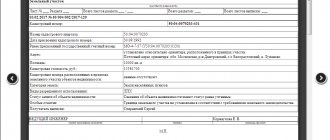The legal definition of an agency agreement is contained in Art. 1005 of the Civil Code of the Russian Federation. It is one of the consensual, mutual and compensated agreements. There are two parties to the transaction, one of which undertakes to act in the interests of the other. She becomes the agent, and the other is called the principal. One of two models for building relationships can be chosen - under agency or commission agreements.
The first option implies that the agent acts on behalf of his principal, and in those transactions that are completed and in which he takes part, he does not have a direct material interest. In the second case, the agent acts on his own behalf, but notifies third parties about in whose interests he carries out his activities. This scenario allows for the material interest of the agent, whose fee may increase due to the increase in the benefits of the principal.
In both cases, the agency agreement retains its legal independence. No matter what transactions the agent participates in, he remains only an agent, limited in his decision-making capabilities by the obligations that arise for him at the time of concluding an agreement with the principal.
Pros for the agent himself
- Reducing the cost of purchasing goods. By concluding an agency agreement, you receive the goods from the supplier for free. You will transfer the proceeds from sales to the supplier, and he will pay you a commission.
- Reducing the tax burden on the simplified tax system. Under an agency agreement, income is only your remuneration, and not all the money that went through the account. For example, you place an advertisement - the client pays money, most of which you transfer to Yandex. It is not profitable to pay tax on the entire amount, so enter into an agency agreement and take into account only your remuneration in taxes.
○ Advice from a lawyer:
✔ What to do if no deductions have been made under the agency agreement? Reports were submitted on time, but there was no reward.
The agent's services are always paid, so he can file a claim against the principal in court. But before starting a dispute, it is advisable to write a claim to the counterparty, demanding payment of the amount due.
✔ Can such an agreement be concluded remotely?
Yes. Nowadays, many contracts are concluded in this way. To do this, it is necessary to reflect in the agreement the provision that it comes into force after affixing seals by both parties. First, one party must put its stamp and signature of the manager, then the documents are scanned and sent to the counterparty, who in turn puts a seal and sends the finished documents to the first party. As a result, both the agent and the principal must have agreements with seals and signatures of both parties.
Video
Specialist Yuri Baykov will tell you in detail what an agency agreement is and how to draw it up correctly.
Published by: Vadim Kalyuzhny , specialist of the TopYurist.RU portal
Three people are involved in the agency agreement
- Principal - hires an agent and instructs him to sell or buy a product or service.
- Agent - carries out the instructions of the principal as an intermediary between the seller and the buyer.
- Seller or buyer - depends on whether the agent is buying or selling.
It's easier to understand with examples.
You have an online store. To deliver the goods, you contact the courier service. In this situation, you, the principal, hire an agent - a courier who delivers the goods to the buyer and receives payment.
You become a principal, even when receiving payment using electronic money (Yandex.Money, PayPal, etc.). After all, the buyer does not pay you directly; the intermediary - the payment system - intervenes in the matter again.
Sometimes the principal instructs the agent not to sell, but to buy the goods. For example, you, the principal, hire a realtor - agent to buy an apartment. This situation also applies to agency transactions.
Agency agreement with a foreign company - features of VAT payment
When a Russian organization enters into an agency agreement with a foreign company, it will have to pay VAT if intermediary services are provided on the territory of the Russian Federation. There is a separate letter from the Ministry of Finance of the Russian Federation dated December 2, 2011 No. 03-07-08/339 on this matter.
The essence of the explanations from the financial department is as follows: intermediary services under such agreements are considered to be provided in the place where the company providing them operates. In the above case, services are provided by a Russian organization in our country, and it is here that VAT should be applied at a 20 percent rate.
The agent works on his own behalf or on behalf of the principal
The agent carries out the assignment in two ways - on his own behalf or on behalf of the principal.
In the first case, the agent introduces himself by his own name and draws up all documents in his name, as if there were no principal at all. The client may not even know that he is working with an intermediary, and will turn to the agent with questions and complaints.
In the second case, the agent draws up all documents in the name of the principal and, as an independent entrepreneur, does not participate in the transaction. This is equivalent to working under a power of attorney, and the agent has no obligations to the client.
Accounting for purchases through an agent
If the agent acts on behalf of the buyer, he actually provides him with the service of finding a supplier. The seller will issue the documents directly to the guarantor, and the buyer will incur the costs of the intermediary’s services:
- goods (work, services) received: Dt 10 (20, 23, 25, 26, 41, 44) Kt 60;
- allocated and accepted for deduction of VAT on purchases:
- Dt 19 Kt 60;
- Dt 68 Kt 19;
- Dt 19 Kt 76;
- Dt 68 Kt 19;
In such a situation, the agent’s entries for recording income will be the same as when he was involved in sales on behalf of the guarantor.
An agent acting on his own behalf during procurement will receive purchase documents issued in his own name. However, neither the purchased goods nor the funds that he will receive from the guarantor to pay for the purchase will be his property.
The goods purchased by the agent for the guarantor will be reflected on the balance sheet: Dt 002.
In the balance sheet, the purchase will be shown to them at the full cost of the purchase in correspondence between the account for settlements with the supplier and the account for accounting for settlements with the guarantor: Dt 76 Kt 60.
Money received from the guarantor and transferred to the supplier will be included in the following entries:
- Dt 51 Kt 76;
- Dt 60 Kt 51.
When the goods are transferred to the guarantor, they will be written off from the off-balance sheet account: Kt 002.
The intermediary's remuneration and the amounts to be reimbursed to him by the guarantor will be formed as follows:
- The intermediary's remuneration is taken into account: Dt 76 Kt 90;
- VAT is charged on remuneration: Dt 90 Kt 68;
- the intermediary's expenses reimbursed by the guarantor are reflected: Dt 76 Kt 60;
- funds are received from the guarantor to pay for remuneration and reimbursable expenses (if they were not initially received in an amount greater than what had to be paid to the supplier): Dt 51 Kt 76.
The guarantor's purchase and cost accounting transactions will be the same as when purchasing on his behalf, with the only difference being that the purchase amount will correspond to that indicated in the documents drawn up in the name of the intermediary by the seller, and settlements for the purchase will not be made directly with the supplier, but through an intermediary:
- goods (work, services) received: Dt 10 (20, 23, 25, 26, 41, 44) Kt 76;
- allocated and accepted for deduction of VAT on purchases:
- Dt 19 Kt 76;
- Dt 68 Kt 19.
The agent receives compensation from the principal
The agent's income is the remuneration he receives from the principal. There are a lot of options for calculating it, from simple to complicated. Therefore, we recommend that you pay attention to this clause in the contract. Here are some ways to determine your reward:
- A specific amount per transaction. This is a reliable option since you know the amount of the reward in advance. But this is not always beneficial for the agent, since he will not be able to earn more than the agreed amount.
- Percentage of the transaction. This is more profitable for the agent and motivates him to sell more. For example, according to the terms of the contract, the agent will receive 10% from each coffee maker sold. If an agent sells 5 coffee makers for 10,000 rubles, his revenue will be 5,000 rubles.
- A markup on the price of a product or service. The principal sets the minimum price at which the agent can sell the goods, but does not limit it to the maximum. This method motivates the agent to sell at a higher price. For example, the principal instructs to sell a coffee maker for at least 10,000 rubles. The agent sets his price - 12,000 rubles. After selling the coffee maker, he will transfer 10,000 to the principal and keep 2,000 rubles for himself. This will be his reward.
In addition to the amount of remuneration, the agent and the principal agree on the timing of its payment. There are also several options here:
- The principal pays the agent before the work is completed.
- The agent transfers the proceeds from sales minus his remuneration to the principal.
- The principal pays the agent after the contract is executed. If no deadline is specified in the contract, the principal pays the remuneration within a week after receiving the report from the agent.
Agency agreement through the eyes of the tax authority
Along with the above advantages of using an agency agreement in business practice, it is also well known to regulatory authorities as a tax optimization tool, in which the separation of the functions of the principal (owner of the goods) and the agent is artificial, the sole purpose of which is to save on income taxes.
How can we distinguish between situations when the use of an agency agreement is justified and meets the true intentions of the parties, and when it is artificial?
In answering this question, you can rely on the opinion of the tax authorities. The following circumstances will indicate the artificiality of the agency agreement:
- facts of transfer of funds by the commission agent who accepted the goods for sale before the actual sale of the goods. We have already said above that the agent acts at the expense of the principal and cannot finance it at his own expense;
- inclusion in the contract of the agent’s obligation to pay for the goods no later than a certain date. Likewise, the agent cannot be sure when he will sell the goods, so he cannot take on the risks of the principal and transfer his funds to him. This condition is typical for a supply agreement, but not an agency agreement;
- lack of agent reports or their non-compliance with legal requirements and/or contract terms.
You may ask, what are the “tax savings” that the tax authority is struggling with in this case, because when selling products, the agent transmits the tax system of the principal.
Accordingly, if he applies the OSN, then all sales are subject to VAT and income tax. However, tax authorities are interested in ensuring that taxes are calculated and paid as early as possible. Thus, the transfer of goods to an agent under a commission agreement is not a sale and does not entail at that moment the principal’s obligation to pay VAT and income tax. The grounds for assessing taxes will arise only when the goods are sold to the final buyer, and this may happen in the following tax periods.
In addition, if the agent taxes his remuneration under the simplified tax system, reclassifying the relationship as a supply will allow additional VAT and income tax to be charged to the Agent himself as a reseller.
Another example is the use of an agency agreement for regional sales.
Planning to enter a new region, the company is looking for a person to distribute products. The main clients are retail stores in the “convenience store” format, which is still preserved in small towns and rural settlements. Such a person independently determines whether he will work alone or hire subordinates, how often he will travel around stores, how he will build relationships with customers, and even whether he will have an office or a sufficient “mobile point” in the form of a car.
It is not very reasonable to employ such employees, because the Labor Code describes the process, not the result of labor. The company is only interested in the result - sales volumes, the number of returns and complaints from customers. For the successful fulfillment of assigned duties, the company is ready to pay a remuneration, without any guaranteed part, which fits into an agency agreement based on the model of a mandate agreement. There may be several such entrepreneurs (each is assigned a certain territory).
Another situation. As they say, feel the difference. The manufacturer’s office employs a pool of 40 sales people who immediately became individual entrepreneurs. But they still come to the office at 9 am, leave at 6 pm and coordinate their vacation schedule. In this case, we are most likely talking about the far-fetched design.
The principal reimburses the agent for expenses
One of the main advantages of a contract for an agent is the minimal cost of its execution.
Firstly, the agent does not spend money on purchasing the goods, because they belong to the principal. And if a product sells poorly, it does not cause losses.
Secondly, the principal reimburses the agent for expenses under the contract. It is possible to set a fixed amount of compensation without taking into account actual costs. Another way is to calculate it based on the agent's actual expenses. Then, in order not to go broke on compensation, it is important for the principal to define in the contract:
- what expenses he reimburses (so that the agent does not include his morning coffee in the list) and their maximum amount;
- documents with which the agent confirms expenses.
Results
Accounting for agency agreements has its own specifics and differs depending on whether the intermediary is involved in the calculations or not. Funds and property received by the intermediary in connection with the execution of the order are not taken into account by him in the balance sheet and do not become his income.
Sources: Civil Code of the Russian Federation
You can find more complete information on the topic in ConsultantPlus. Free trial access to the system for 2 days.
The agent prepares a work report
A report is a mandatory document with which the agent informs the principal about the work done. We recommend that you define the following conditions in advance:
- report form - usually it is drawn up as a separate document;
- information that the agent includes in the report. For example, what kind of work the agent performed (list of services provided, list of goods sold, etc.) and how much money he spent on it. We recommend that the report also state the amount of the agent’s remuneration;
- The deadline for sending the report is after each transaction or for a period (for example, once a month).
The principal sends comments on the report within 30 days, unless another period is specified in the agreement. Later you won’t be able to make changes and you will have to pay the agent according to the report.
This is not all that can be said about agency agreements. We have planned several more articles about how the agent and the principal pay taxes under different interaction schemes.
Accounting under an agency agreement with an agent
The intermediary is not the owner of the goods and services purchased or purchased in the interests of the principal. That is, goods and services received cannot be recognized as expenses, and those transferred cannot be recognized as company income. Income will only reflect the amount of the agency fee issued under the agreement. It will also be necessary to calculate and pay VAT to the budget if you work for OSNO. The receipt of material assets in accounting is reflected in off-balance sheet accounts:
- 002 - if assets acquired on behalf of an order were received;
- 004 - if assets have been received that the agent is instructed to sell.
Agency agreement: accounting entries for the commission agent.
| Contents of operation | Debit | Credit |
| Asset acquisition | ||
| Goods, works, services supplied by the seller | 76 | 60 |
| The receipt of material assets is reflected | 002 | |
| Payment has been made to the seller | 60 | 51 |
| Material assets were transferred to the principal | 002 | |
| Sale of assets | ||
| Received valuables for sale from the consignor | 004 | |
| Payment received from buyer | 51 | 62 |
| The advance payment received from the buyer is transferred to the principal | 76 | 51 |
| Material assets were sold in the interests of the principal | 62 | 76 |
| Assets written off balance sheet | 004 | |
| Accounting for payment for intermediary services | ||
| Remuneration accrued under the mediation agreement | 76 | 90 |
| VAT charged on agency fees | 90 | 68 |
| Reimbursement of expenses and payment for intermediary services was received from the principal | 51 | 76 |
Please note that the intermediary does not reflect in its accounting VAT on goods and services received and sold in the interests of the principal. An invoice received from a supplier cannot be reflected in the purchase ledger. It should be reflected in the journal of received invoices and re-issued to the principal in accordance with the requirements of Decree of the Government of the Russian Federation of December 26, 2011 No. 1137.
Tripartite agency agreement or additional agreement?
If the parties decide to change or supplement the dispositive rules proposed by the Civil Code, then it is recommended to pay close attention to the development of new rules. As an example, let’s consider a situation where the parties to an agency agreement decided to involve a third party, a subagent, in the execution of the transaction. The circumstances of his involvement in legal relations can be fixed in a separate agreement between the agent and the additional contractor or in the main agreement, which will acquire the status of a tripartite one.
What you should pay attention to?
1. On the subject of agreement.
Within the framework of a trilateral transaction, it is determined according to general rules. If the agent and subagent enter into an additional agreement, then they must remember that its subject cannot be broader than the subject of the main agreement. Violation of this rule may entail recognition of the additional agreement as an independent transaction, the actions of which must be performed at the expense and in the interests of the agent.
2. The responsibility of the subagent.
As a general rule, the agent is responsible for the actions of the subagent to the principal (Article 1009 of the Civil Code). However, when concluding a tripartite agreement using the mandate model, the parties should remember that, guided by Art. 1011 and 976 of the Civil Code, the agent will not be responsible for the actions of the principal.
How to draw up an agency agreement for procurement: instructions and sample
Agency Agreement No. 21 / 22Moscow
| "24" March 2021 |
_____ "____________________", hereinafter referred to as the "Agent", represented by the General Director _____________________, acting on the basis of the Charter, on the one hand, and ________________ "__________________", hereinafter referred to as the "Principal", represented by the General Director ___________________, acting on the basis of the Charter , on the other hand, and when collectively referred to as the “Parties”, have entered into this agency agreement (hereinafter referred to as the “Agreement”) as follows:
1. THE SUBJECT OF THE AGREEMENT
1.1. The Agent, on its own behalf at the expense of the Principal and on his behalf (based on written requests from the Principal), undertakes to perform the following actions (hereinafter referred to as the “Services”):
- make reservations of hotels and other places of temporary stay;
- book and purchase air and railway tickets for the Principal;
- issue entry visas and insurance policies for the Principal’s employees;
- organize the Principal’s events abroad and on the territory of the Russian Federation, including, but not limited to, making restaurant reservations;
- organize translation services;
- provide participation of the Principal’s employees in conferences in the field of medicine and sports;
- provide transport services, including, but not limited to, transfer services for the Principal’s employees, luggage transportation services;
- carry out other instructions of the Principal related to the activities of the Principal.
1.2. The Principal undertakes to pay remuneration for the Services provided, as well as to compensate for expenses incurred in the execution of this Agreement, in the manner and under the conditions specified in the Agreement.
1.3. The specific scope of the required Services, as well as other necessary information, is determined by the Principal in each specific case by sending a corresponding application to the Agent.
For the purposes of this Agreement, sending an application to the Agent means sending the information provided for in this clause to the email address specified in clause 7.6.
1.4. The cost and conditions for the provision of Services are determined by the Parties for each application separately. The agreed terms and costs are formalized by the Parties in the relevant Appendices to the Agreement, which are an integral part of it, except for the cases provided for in clause 1.5.
1.5. The parties have established that if there is a need to provide additional Services, such Services shall be agreed upon in the following order:
1.5.1. The responsible person specified in clause 7.6 or the head of the football team sends the Order in the manner provided for in clause 7.8;
1.5.2. If it is possible to execute the Order, the Agent, within 1 (one) day, provides the person who sent such an Order with an approximate calculation of the costs of the Order, as well as the amount of remuneration determined in accordance with the terms of this agreement;
1.5.3. The person who received the calculation, within 1 (one) day after receiving it, notifies the Agent about the approval or non-approval of the provided calculation; the terms of execution of the Order are considered agreed upon by the Parties from the moment of notification of the approval of the corresponding calculation;
1.5.4. The report on the execution of the Order is included in the report on the relevant Appendix in the manner prescribed by the agreement, with evidence attached to the approval of the Orders in the manner prescribed by this paragraph.
1.5.5. The maximum value of such Orders cannot exceed 10% of the total amount of the relevant Applications, taking into account remuneration, unless a different amount is established by the relevant Application.
2. RIGHTS AND OBLIGATIONS OF THE PARTIES
2.1. The agent is obliged:
2.1.1. Provide Services on time, in full, with proper quality and in full accordance with the relevant application.
2.1.2. If it is impossible to fulfill the application, send written notice within 24 (twenty-four) hours from the receipt of the relevant application. If such notification is not sent, the application is considered accepted for execution. The application is also considered accepted for execution when he performs any actions indicating acceptance of the application for execution, including when issuing an invoice to the Principal.
2.1.3. If the application is accepted for execution, within 2 (two) days, provide the Principal for signing with an Appendix to this agreement indicating the cost of executing the application (i.e., the total costs of executing the application) and remuneration.
2.1.4. After execution of the relevant Appendix, provide a written report (hereinafter referred to as the “Report”), prepared in the form approved in Appendix No. 1 to the Agreement, as well as in accordance with the requirements established by clause 3.5.
2.2. The agent has the right:
2.2.1. Refuse to execute an application accepted for execution by notifying the Principal in writing if the Principal is late in paying for such an application by more than 10 (ten) working days, unless otherwise specified in the relevant Appendix.
2.2.2. Involve third parties in the execution of this Agreement. If third parties are involved, the Agent is liable to the Principal for the consequences of non-fulfillment or improper fulfillment of obligations by third parties.
2.2.3. Deviate from the Principal’s instructions if, under the circumstances of the case, this is necessary in the interests of the Principal and the Agent could not first request the Principal or did not receive a response to his request within 24 (twenty-four) hours. The Agent is obliged to notify the Principal as soon as notification becomes possible.
2.2.4. For compensation of costs not agreed upon with the Principal, if they were necessary in the interests of the Principal and the Agent could not first request the Principal or did not receive a response to his request within 24 hours after notification. The Agent must provide notice of costs incurred as soon as notice is possible.
2.3. The principal is obliged:
2.3.1. Submit applications for the provision of Services in the following order and terms:
- if hotel reservations are necessary, the application must be received no later than 1 (one) week before the team’s arrival, the application must indicate the number of persons, place and timing;
- if it is necessary to purchase (book) air and railway tickets, the application must be received no later than 5 (five) days before the departure date, the application must indicate the last name, first name (in English) and passport details of the departing person;
- if it is necessary to obtain entry visas, the application must be received by the Agent no later than 1 (one) month before the expected departure date;
- for all other Services, the application must be submitted within a reasonable time frame, presuming the proper provision of the Services.
If the application is submitted by the Principal in violation of the deadlines specified in clause 2.3.1 of this Agreement, such an application may be accepted for execution in the manner established by clause 2.1.2.
Pay remuneration for the Services provided in the amount and manner established by this Agreement.
Ensure the timely arrival of departing persons at the point of departure (airport, railway station, etc.), namely: no later than 2 (two) hours before departure.
In case of refusal of ordered entry visas, the Principal is obliged to immediately notify the Agent and reimburse the Agent for the expenses actually incurred in connection with the issuance of visas (subject to their documentary confirmation), as well as pay the Agent the agency fee that would be due to the Agent if such an application was fulfilled .
In case of refusal of ordered air or railway tickets, the Principal is obliged to immediately notify the Agent and reimburse the Agent for expenses actually incurred in connection with the order of air tickets (including airline sanctions) (subject to their documentary confirmation).
In case of cancellation of a booking, the Principal is obliged to immediately notify the Agent, reimburse the Agent for the expenses actually incurred by him (subject to their documentary confirmation), and also pay the Agent the agency fee that would be due to the Agent if such an application was fulfilled.
2.4. The principal has the right:
2.4.1. Change, by agreement with the Agent, both during execution and before acceptance for execution, the terms of the Application, including if such changes lead to an increase or decrease in the cost of executing the application specified in the relevant Appendix to the Agreement.
2.4.2. Provide instructions to the Agent on the procedure for executing instructions under the Agreement.
2.4.3. Require provision of information on the progress of execution of instructions under the Agreement.
2.4.4. At any time, refuse to execute this Agreement unilaterally (Article 450 of the Civil Code of the Russian Federation), by notifying the Agent in writing 15 (fifteen) days before the date of termination of the Agreement. In this case, the Parties undertake to reconcile mutual settlements within 5 (five) business days from the date the Agent receives notice of termination of the Agreement. Accepted but not fulfilled obligations under the Agreement, including but not limited to payment obligations, are subject to fulfillment by the Parties regardless of termination of the Agreement.
3. PAYMENT PROCEDURE
3.1. The Agent's remuneration under this Agreement is payable if the Agent fulfills the Principal's request, as well as in other cases established by this Agreement and the Appendices. The amount of agency remuneration for the provision of Services is determined by the relevant Appendix to this agreement, but cannot exceed 500,000 rubles under this agreement.
3.2. Unless a different procedure is established by the relevant Appendix, payment under the Agreement is made in the following order:
3.2.1. The Principal transfers an advance payment in the amount of 50% (fifty percent) of the cost of the Services specified in the relevant Appendix to the Agent’s bank account within 5 (five) days from the date of signing such Appendix;
3.2.2. The Customer transfers the remaining amount, as well as the Agent’s remuneration, to the Agent’s current account within 5 (five) banking days from the date of signing by the Parties of the relevant Report and if there is an invoice issued by the Agent.
3.2.3. Payment under this agreement is made only in Russian rubles.
3.3. If, during the execution of the application, the Principal makes changes to the application that lead to an increase or decrease in the cost of executing the Application, then the Principal, within 3 (three) banking days from the date of drawing up the Report and receiving the invoice from the Agent, transfers the difference in the cost of services or (in case of a decrease cost of completing the application) The Agent transfers the difference to the Principal within the same time frame.
3.4. The total amount of expenses incurred for the implementation of the Application and the corresponding remuneration is determined by the Parties on the basis of the relevant Report. The report is drawn up by the Agent and provided for signature in 2 (two) copies within 5 (five) business days from the date of execution of the Application. The Principal is obliged to return a copy of the signed Report within 10 (ten) working days or send to him a written reasoned refusal to sign it.
3.5. The procedure for making settlements between the Parties is determined by the relevant Appendices.
The final cost of the Services under this Agreement, as well as the amount of expenses for the execution of Orders and the amount of remuneration are determined in the relevant Reports.
4. LIABILITY UNDER THE CONTRACT
4.1. In the event of non-fulfillment or improper fulfillment of obligations by one of the Parties under this Agreement, the guilty Party is obliged to compensate the other Party for the losses caused by such non-fulfillment.
4.2. In case of late payment, the Agent has the right to demand from the Principal payment of a penalty in the amount of 0.05% (five hundredths of a percent) of the overdue amount for each day of late payment.
4.3. In case of non-execution or improper execution of an application accepted for execution, the Principal has the right to demand payment of a fine in the amount of 5% (five percent) of the cost of executing the application.
4.4. The agent is not responsible for:
- the authenticity of documents and information provided by the Principal, and for possible consequences associated with this circumstance;
- actions of border, customs and other competent government bodies.
5. FORCE MAJEURE
5.1. The Parties are released from liability for partial or complete failure to fulfill obligations under this Agreement if this failure was the result of force majeure circumstances that arose after the conclusion of this Agreement as a result of extraordinary circumstances that the Parties could not foresee and prevent.
5.2. If the circumstances specified in clause 5.1 occur, each Party must immediately notify the other Party about them in writing. The notice must contain data on the nature of the circumstances, evidence confirming the existence of such circumstances. Relevant evidence is documents issued by authorized government bodies, as well as other competent organizations.
5.3. In case of failure to comply with the requirements established in clause 5.2, the Party subject to force majeure circumstances does not have the right to refer to such circumstances as circumstances excluding liability.
5.4. In the event of the occurrence of the circumstances provided for in clause 5.1, the period for the Party to fulfill its obligations under this Agreement is postponed in proportion to the time during which such circumstances and their consequences apply.
6. DISPUTE RESOLUTION
6.1. All disputes and disagreements that may arise between the Parties on issues that are not resolved in the text of this Agreement will be resolved through negotiations.
6.2. If controversial issues are not resolved during negotiations, the disputes are resolved in the Moscow Arbitration Court. A pre-trial claim procedure is mandatory. The deadline for responding to a claim is 15 (fifteen) calendar days from the date of its receipt.
7. ADDITIONAL CONDITIONS
7.1. This Agreement may be amended or terminated by written agreement of the Parties, as well as in other cases provided for by the current legislation of the Russian Federation and this Agreement.
7.2. Any changes and additions to this Agreement are valid provided that they are made in writing and signed by authorized representatives of the Parties.
7.3. All notices and communications must be given in writing. Messages will be considered duly executed if they are sent by registered mail, by telegraph, fax or delivered personally to the legal (postal) addresses of the parties with receipt against receipt by the relevant officials.
7.4. This Agreement comes into force from the moment it is signed by the Parties and is valid until December 31, 2021.
7.5. This Agreement is drawn up in 2 (two) copies having equal legal force, 1 (one copy) for each of the Parties.
7.6. Persons responsible for the implementation of this Agreement:
- From the Agent's side: (full name, phone number, e-mail)
- From the Principal's side: (full name, phone number, e-mail)
7.8. Applications, orders, notices, notices, claims and demands must be made in writing and handed to representatives of the Parties or sent to the addresses and/or fax numbers and/or e-mail of the Parties specified in this Agreement, unless otherwise stated herein Agreement.7.7. In all cases, if the legal address, actual location, bank details change, are declared insolvent, insolvent (bankrupt), liquidation, transformation, reorganization or change in the legal form of the enterprise, the Parties must notify each other within 3 (three) days from the date of change or making such a decision by the relevant authorities.
Documents are considered delivered to the Party that is the addressee at the time of delivery to a representative of the Party, delivery to the address of such Party, at the time of receipt of a facsimile copy or at the time of receipt of an electronic message.
7.9. Documents under this Agreement received by one Party from the other Party via electronic communication, facsimile, have full legal force, which does not exempt the Parties from subsequently transferring the originals of such documents as soon as possible. The risk of distortion of information when transmitted by facsimile and electronic communication is borne by the Party transmitting such information.
8. ADDRESSES AND SIGNATURES OF THE PARTIES
Agent:
Principal:
Distinction between the property of the agent and the principal
Things received by the intermediary from the principal (or acquired by the intermediary at the expense of the principal) are the property of the principal.
In this case, the agent is responsible to him for the loss, shortage or damage of this property (clause 1 of Article 996, clause 1 of Article 998, Article 1011 of the Civil Code of the Russian Federation). In relation to, for example, the principal's goods, the parties usually have no questions - the intermediary accepts them for off-balance sheet accounting. But with regard to other objects of civil rights, the situation is not so clear.
By virtue of Article 128 of the Civil Code of the Russian Federation, the objects of civil rights include:
— things, including cash and documentary securities, other property, including non-cash funds, uncertificated securities, property rights;
— results of work and provision of services;
— protected results of intellectual activity and means of individualization equivalent to them (intellectual property);
- intangible benefits.
From this article it follows that, for example, non-cash funds refer to other property, and not to things. And this causes difficulties for the parties to the agency agreement in a situation where the intermediary is involved in the settlements, and the third party, for one reason or another, did not fulfill its contractual obligations (for example, delayed payment) or, on the contrary, transferred an advance (and then did not contact for more than three years, or was liquidated).
On the one hand, based on the wording of Article 128, 996 of the Civil Code of the Russian Federation, the principal does not have ownership rights to non-cash funds received from the buyer to the agent’s account.
At the same time, with regard to the commission agreement, the Supreme Arbitration Court of the Russian Federation explained (clause 9 of the Information Letter of the Presidium of the Supreme Arbitration Court of the Russian Federation dated November 17, 2004 N 85) that, within the meaning of Art. 999 of the Civil Code of the Russian Federation, in the absence of an agreement between the parties to the contrary, the commission agent is obliged to transfer to the principal the amounts received from the sale of goods owned by the latter as they are received, and not based on the results of the execution of the principal’s instructions in full. This means that the obligation to transfer to the principal the amounts received from third parties arises from the commission agent immediately at the time of receipt of these amounts and is subject to fulfillment within a reasonable time, unless otherwise established by the commission agreement.
It turns out that all amounts (including advances) that the commission agent received from the buyer under the purchase and sale agreement (concluded on behalf of the principal) must be transferred to the principal. This obligation arises immediately upon receipt of the amount, while the contract may agree on the period during which such amounts are transferred to the principal.
If a third party has violated its obligations under an agreement concluded with an intermediary, then clause 2 of Article 993 of the Civil Code of the Russian Federation establishes a general rule, according to which in the event of a third party’s failure to fulfill a transaction concluded with him by the commission agent, the commission agent is obliged to immediately notify the principal about this, collect necessary evidence, as well as, at the request of the principal, transfer to him the rights under such a transaction in compliance with the rules on the assignment of claims.
Since the rules established for a commission agreement are also applicable to an agency agreement (Article 1011 of the Civil Code of the Russian Federation), the amounts of payment received from third parties and held by the agent should be considered as an obligation of the agent to the principal. The agent has no right to keep them. Similarly, the intermediary transfers the debts of third parties to the principal.
Moreover, if there is a debt of the principal to the agent, the intermediary has the right to withhold the amounts due to him under the agency agreement from all amounts received by him at the expense of the principal (Articles 410, 997, 1011 of the Civil Code of the Russian Federation).









